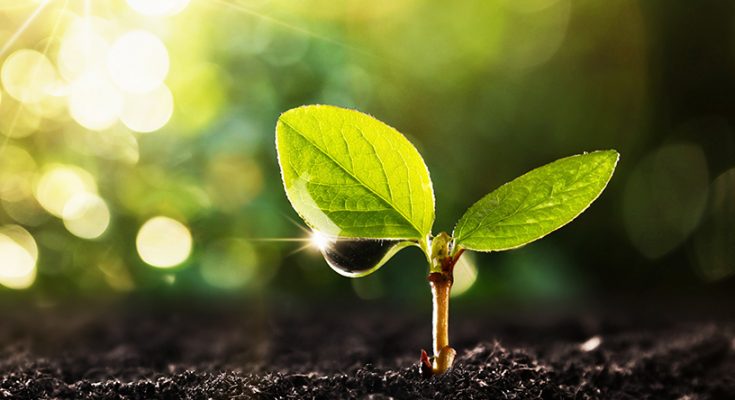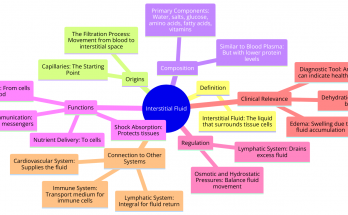Photosynthesis, the important process by which plants, algae and some bacteria convert sunlight into chemical energy, is of great importance to the functioning and well-being of our planet. Its importance spans several areas, including the survival of animals, the growth and development of plants, the nourishment of human life and the maintenance of nature’s delicate balance.
Photosynthesis is a biological process that converts solar energy into chemical energy, mainly in the form of glucose. It takes place in green plants, algae and certain bacteria and involves the uptake of carbon dioxide from the atmosphere, the use of sunlight and chlorophyll, and the release of oxygen as a by-product.
Table of Contents
Importance of Photosynthesis
The Importance of Photosynthesis for Animals
Photosynthesis plays a crucial role in animal life in many ways –
Oxygen Production
During Photosynthesis, plants and algae release oxygen as a by-product. This oxygen-rich atmosphere enables aerobic organisms, including animals, to perform cellular respiration and produce the energy required for their metabolic processes. Photosynthesis is responsible for maintaining the oxygen balance necessary for the survival of various animal species.
Food Chain
Photosynthesis is the basis of the food chain. Through this process, plants produce organic compounds, such as glucose, which serve as a source of nutrition for animals. Herbivores consume plants, carnivores feed on herbivores and so on, creating a complex network of energy transfer and sustaining various ecosystems. Without Photosynthesis, the intricate web of life and the interdependence of species would be disrupted.
The Importance of Photosynthesis for Plants
Photosynthesis is of utmost importance to plants as it enhances their growth, development and overall well-being –
Energy Source
Photosynthesis is the primary source of energy for plants. Through this process, plants convert solar energy into chemical energy in the form of glucose. This energy drives various metabolic activities, including the synthesis of proteins, DNA and other important molecules necessary for plant growth and reproduction.
Production of Nutrients
Photosynthesis allows plants to synthesise organic compounds such as carbohydrates, lipids and proteins. These compounds serve as building blocks for plant tissues and organs and enable growth, development and the formation of specialised structures such as leaves, stems and flowers.
Release of oxygen
Similar to its significance for animals, Photosynthesis in plants releases oxygen as a by-product. This oxygen is essential for aerobic organisms to survive and contributes to the oxygen-rich atmosphere that supports life on Earth.
The Importance of Photosynthesis for Humans
Photosynthesis is of critical importance to human life and societal well-being –
Food Production
Photosynthesis is the basis of agriculture and food production. By providing plants with the energy to synthesise organic compounds, it enables the growth of crops and the production of fruits, vegetables, grains and other food sources. Without Photosynthesis, the availability of food for the growing human population would be severely limited.
Oxygen Supply
The oxygen released during Photosynthesis is essential for human respiration. It enables us to obtain energy from glucose through cellular respiration and support our vital bodily functions.
Renewable Energy
Research into Photosynthesis has paved the way for advances in renewable energy technology. Researchers are exploring ways to use the principles of Photosynthesis to develop sustainable energy sources such as solar cells and biofuels. This research holds great promise for reducing our dependence on fossil fuels and mitigating climate change.
The Importance of Photosynthesis to Nature
Photosynthesis plays a central role in maintaining the balance and functioning of natural ecosystems.
Carbon Dioxide Reduction
Photosynthesis helps regulate the concentration of carbon dioxide in the atmosphere by absorbing this greenhouse gas. Plants absorb carbon dioxide during Photosynthesis, sequestering it and mitigating climate change by reducing its overall presence.
Biodiversity Support
Photosynthetic organisms, especially plants, create and maintain habitats for a wide range of species. Forests, grasslands, coral reefs and various ecosystems are home to a wide range of plants and animals, all of which depend on Photosynthesis for their survival. Photosynthesis supports biodiversity by providing food, shelter and a favourable environment for countless species.
Ecological balance
Photosynthetic organisms contribute to ecological balance by stabilising soils, preventing erosion and maintaining nutrient cycling in ecosystems. They also act as natural air filters, absorbing pollutants and improving air quality.
Also Check – Name the factors affecting Photosynthesis
Also Check – Steps of Photosynthesis
Also check – What are the Adaptations of leaf for Photosynthesis
Also Check – Where do Plants get each of the Raw Materials required for Photosynthesis

